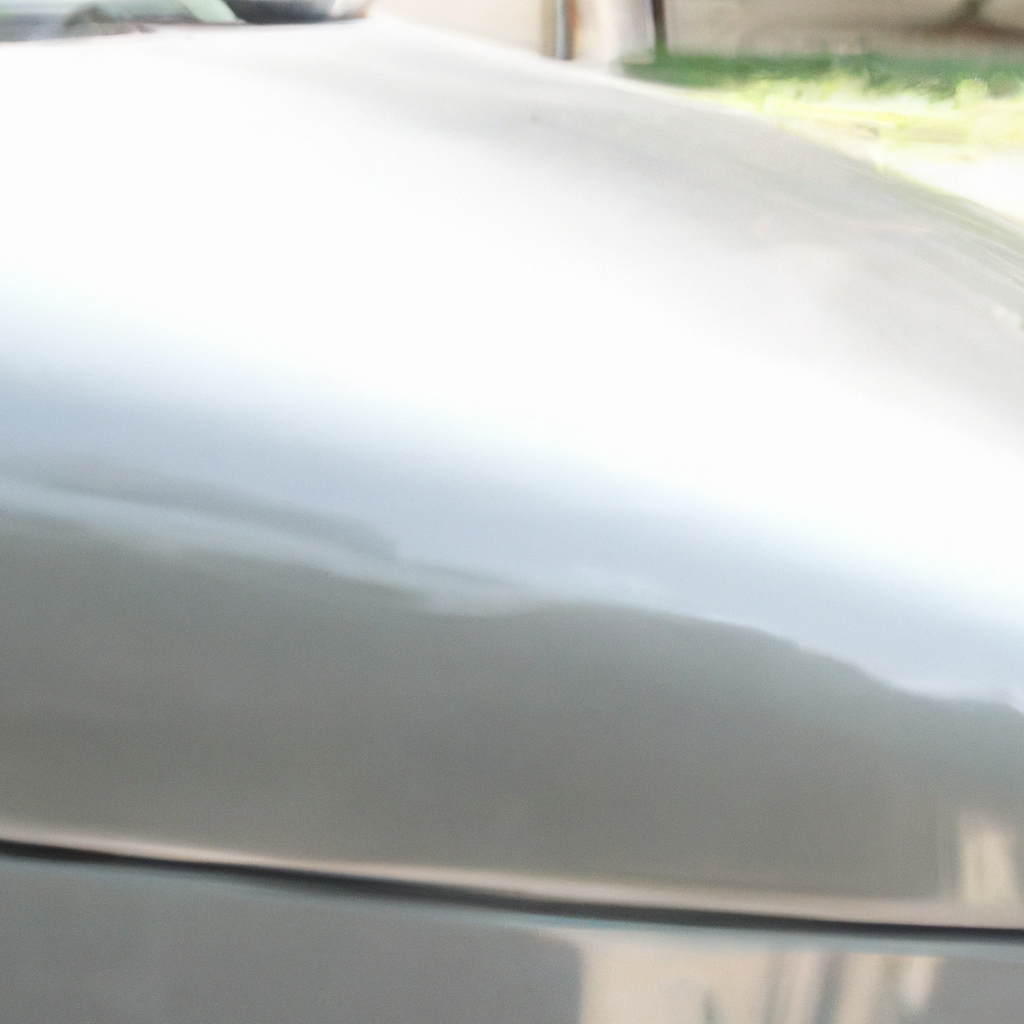Have you ever wondered why Nissan cars seem to have such poor quality paint? The reputation of Nissan’s paint has left many car enthusiasts scratching their heads in confusion. From premature fading to peeling, it seems like Nissan paint just can’t withstand the test of time. But what exactly is the root cause behind this phenomenon? In this article, we’ll explore the reasons why Nissan paint is often described as subpar, shedding light on the possible factors contributing to this notorious issue.
Common Paint Issues
Peeling Paint
Peeling paint is a common problem that Nissan owners often encounter. It occurs when the paint layer starts to separate from the vehicle’s surface, resulting in unsightly patches or even large sections of paint peeling away. This issue not only affects the appearance of your Nissan but can also lead to further damage if left unresolved.
Chipping and Scratching
Another frustrating paint issue that Nissan owners face is chipping and scratching. Small chips and scratches can occur as a result of road debris, rocks, or even accidental contact with objects. While these may seem like minor issues, they can expose the underlying metal to moisture and ultimately lead to rust formation if not addressed promptly.
Uneven Paint
Uneven paint, also known as orange peel, is another persistent problem observed in Nissan vehicles. It refers to the textured appearance of the paint surface, resembling the skin of an orange. This issue is a result of improper paint application, and it can make your Nissan’s paint job appear subpar and affect its overall aesthetic appeal.
Fading and Discoloration
Over time, it is not uncommon for Nissan vehicles to experience paint fading and discoloration. Exposure to the sun’s ultraviolet (UV) rays and environmental factors, such as pollutants and harsh weather conditions, can cause the paint to lose its vibrancy and fade. This issue can make your Nissan look aged and diminish its visual appeal.
Potential Causes
Improper Paint Application
One of the key reasons behind Nissan’s paint problems is improper paint application during the manufacturing process. This can include issues such as inadequate surface preparation, inconsistent paint thickness, or insufficient drying time between coats. These factors can compromise the adhesion and durability of the paint, leading to various paint issues down the line.
Subpar Paint Quality
The choice of paint materials and their quality can significantly impact the longevity and performance of a vehicle’s paint job. Poor-quality paint or using low-grade pigments can make the paint more susceptible to chipping, fading, and peeling. It is essential for manufacturers to prioritize using high-quality paint to ensure a durable and long-lasting finish.
Environmental Factors
Environmental factors also play a role in the deterioration of Nissan’s paint. Extreme weather conditions, including intense sunlight, high humidity, and exposure to salt or other corrosive substances, can accelerate wear and tear on the paint surface. Additionally, pollutants such as acid rain and industrial fallout can cause further damage, leading to paint fading and discoloration.
Lack of Corrosion Protection
An inadequate or compromised corrosion protection system can have a detrimental effect on the paint job of a Nissan vehicle. If the underlying metal surfaces are not adequately protected against rust formation, it can lead to paint bubbling, peeling, and chipping. This lack of corrosion protection can be attributed to subpar manufacturing processes or insufficient use of preventive measures.

Quality Control Issues
Inadequate Testing
One of the factors contributing to Nissan’s paint problems is inadequate testing during the manufacturing process. Thorough testing should be conducted to ensure the durability, adhesion, and resistance of the paint to various environmental conditions. Failure to perform comprehensive testing can result in substandard paint jobs that are prone to issues such as peeling, chipping, and fading.
Poor Inspection Processes
Effective inspection processes are crucial in identifying any paint defects or abnormalities before the vehicles leave the manufacturing facility. However, if inspection processes are not robust or lack attention to detail, it becomes more likely for paint issues to go unnoticed. This can lead to a higher number of Nissan vehicles with paint problems reaching the hands of consumers.
Lack of Customer Feedback
Regular communication and feedback from customers are essential in identifying paint issues and finding effective solutions. If there is a lack of mechanisms for customers to report paint problems or if their concerns are not adequately addressed, it becomes difficult for manufacturers to identify and rectify recurring issues. This can result in a prolonged period of poor paint quality without appropriate steps towards improvement.
Manufacturer’s Perspective
Budget Constraints
Like any other business, car manufacturers also need to manage their budget effectively. Budget constraints may lead to cost-cutting measures, such as using lower-priced paint materials or compromising on quality control processes. While these actions can help reduce expenses, they can have negative implications on the quality and performance of the paint used in Nissan vehicles.
Third-party Suppliers
Car manufacturers often rely on third-party suppliers for their paint materials. If these suppliers do not meet the required quality standards or fail to provide consistent batches of paint, it can directly impact the overall paint quality and durability of Nissan vehicles. Manufacturers must carefully select reliable suppliers to ensure the delivery of high-quality paint materials.
Warranty Coverage
To address the paint issues faced by Nissan owners, the manufacturer provides warranty coverage that includes paint defects. However, the extent and duration of the warranty coverage can vary depending on the specific model and the nature of the paint problem. It is essential for Nissan owners to be familiar with the warranty coverage details concerning paint issues to ensure they receive the necessary support and repairs.

Consumer Complaints
Online Forums and Social Media
The prevalence of social media platforms and online forums allows Nissan owners to connect and share their experiences regarding paint issues. Many owners turn to these platforms to voice their concerns, seek advice, and share pictures or videos of their paint problems. This widespread sharing of information can help raise awareness and draw attention to the persisting paint issues faced by Nissan owners.
Service Bulletins
Car manufacturers often release service bulletins to alert owners and dealerships about known issues and recommended solutions. These bulletins specifically address paint problems and provide guidance on how to identify, diagnose, and repair them. Owners should regularly check for any service bulletins related to paint issues to stay updated and informed on the latest recommendations from the manufacturer.
Recalls and Legal Actions
In some cases, the severity and extent of paint problems can lead to recalls initiated by the manufacturer. Recalls involve notifying affected Nissan owners and providing free repairs or replacements to address the paint issues. Additionally, some owners may resort to legal actions, such as filing lawsuits or joining class-action lawsuits, to seek compensation for the inconvenience and potential financial losses caused by the paint problems.
Repercussions for Car Owners
Decreased Resale Value
The presence of paint issues, such as peeling, chipping, or fading, can significantly decrease the resale value of a Nissan vehicle. Prospective buyers may be deterred by the visible imperfections and consider the potential costs associated with repainting or repairing the vehicle. Reduced resale value can result in financial losses and difficulties when attempting to sell or trade in the affected Nissan.
Higher Maintenance Costs
Nissan owners with paint issues often incur higher maintenance costs to address the problems. Repainting or repairing the affected areas can be costly, especially if the issues are widespread or require professional assistance. Additionally, regular maintenance routines, such as washing and waxing, may need to be intensified to prevent further deterioration of the paint. These additional expenses can be burdensome for Nissan owners.
Frustration and Inconvenience
Dealing with ongoing paint issues can be a source of frustration and inconvenience for Nissan owners. The constant need for repairs, the unsightly appearance of the vehicle, and the time spent addressing the problems can be emotionally draining and disrupt the overall ownership experience. It is understandable that owners may feel frustrated by the recurring paint issues and the impact they have on their daily lives.

Actions Taken by Nissan
Improved Paint Quality Control
Recognizing the significance of paint problems, Nissan has taken steps to improve its paint quality control processes. By investing in advanced technology and rigorous testing protocols, the manufacturer aims to minimize paint defects and ensure a higher level of consistency and durability in its paint jobs. These improvements are intended to address past issues and prevent future occurrences.
Revised Warranty Policies
To instill confidence in Nissan owners, the manufacturer has revised its warranty policies to cover paint defects more comprehensively. These enhanced warranty policies provide increased protection and support for owners who experience paint problems. The specific details of the warranty coverage vary depending on the model and the nature of the paint issue but generally offer reassurance to owners facing such concerns.
Enhanced Customer Support
Nissan has recognized the importance of effective customer support in addressing paint issues. The manufacturer has implemented measures to enhance customer support services, ensuring that owners have access to knowledgeable representatives who can assist them with their paint-related concerns. This improved customer support aims to provide timely and satisfactory solutions for Nissan owners experiencing paint problems.
Steps to Protect Your Nissan’s Paint
Regular Washing and Waxing
Regularly washing your Nissan and applying wax can help protect its paint from dirt, grime, and environmental contaminants. Washing the vehicle removes surface pollutants that can cause premature paint deterioration, while waxing provides an additional layer of protection, enhancing shine and minimizing the risk of fading and discoloration. Follow recommended guidelines for washing and waxing to maintain your Nissan’s paint quality.
Avoiding Harsh Chemicals
When cleaning your Nissan, it is important to avoid using harsh chemicals or abrasive materials. These can damage the paint surface, causing it to peel, scratch, or fade more easily. Instead, opt for car wash solutions specifically formulated for automotive paint and use soft microfiber cloths or gentle brushes. Avoiding harsh chemicals ensures the longevity and integrity of your Nissan’s paint job.
Parking in Shade or Covered Areas
Parking your Nissan in shade or covered areas helps protect its paint from the damaging effects of prolonged sun exposure. UV rays can accelerate paint fading and discoloration, making shade or covered parking spaces beneficial in mitigating these issues. If shade or covered parking is not available, consider using a car cover that provides an additional layer of protection against the sun’s harmful rays.

Legal Options for Nissan Owners
Lemon Law Claims
Depending on your jurisdiction and the severity of the paint problems, you may be eligible to file a lemon law claim. Lemon laws vary by state or country and typically provide protection to consumers who purchase defective vehicles. Engaging an attorney experienced in lemon law can help assess your situation and explore the possibility of seeking recourse for your Nissan’s paint issues.
Class Action Lawsuits
In some instances, affected Nissan owners may choose to participate in class action lawsuits. These lawsuits involve a group of individuals facing similar paint issues coming together to seek legal remedies collectively. By joining forces, owners can strengthen their claims and increase their chances of receiving compensation for the paint problems they have experienced. Engaging legal counsel is crucial in navigating class action lawsuits.
Arbitration and Mediation
Arbitration and mediation are alternative dispute resolution processes that allow Nissan owners and the manufacturer to resolve paint-related issues outside of the courtroom. These processes aim to facilitate productive discussions and negotiations, potentially leading to a satisfactory resolution for both parties. Engaging in arbitration or mediation can help avoid lengthy court battles and provide a quicker resolution to paint problems.
Conclusion
Recognizing the persisting paint issues faced by Nissan owners is essential in demanding accountability from the manufacturer. Peeling paint, chipping and scratching, uneven paint, and fading and discoloration are all problems that can impact the appearance and value of a Nissan vehicle. By understanding the potential causes and the quality control issues that contribute to these paint problems, owners can better navigate their options for resolution.
Nissan has taken steps to address the paint issues through improved paint quality control, revised warranty policies, and enhanced customer support. However, it is crucial for Nissan owners to also take proactive steps to protect their vehicle’s paint, such as regular washing and waxing and avoiding harsh chemicals. Understanding the legal options available, including lemon law claims, class-action lawsuits, and arbitration or mediation, can empower owners to seek the appropriate recourse if their paint issues persist.
In conclusion, recognizing the problem, demanding accountability, and exploring alternatives are necessary steps towards resolving Nissan’s paint problems. By actively addressing these issues, both Nissan and its owners can work towards achieving a more satisfactory ownership experience and the long-lasting, high-quality paint job that every Nissan owner deserves.

